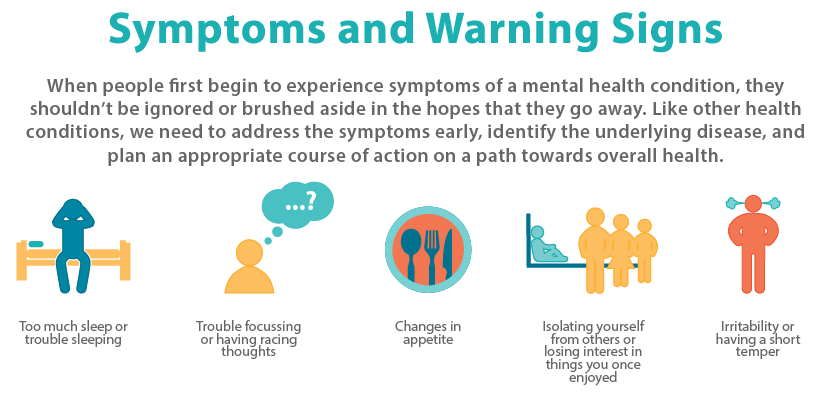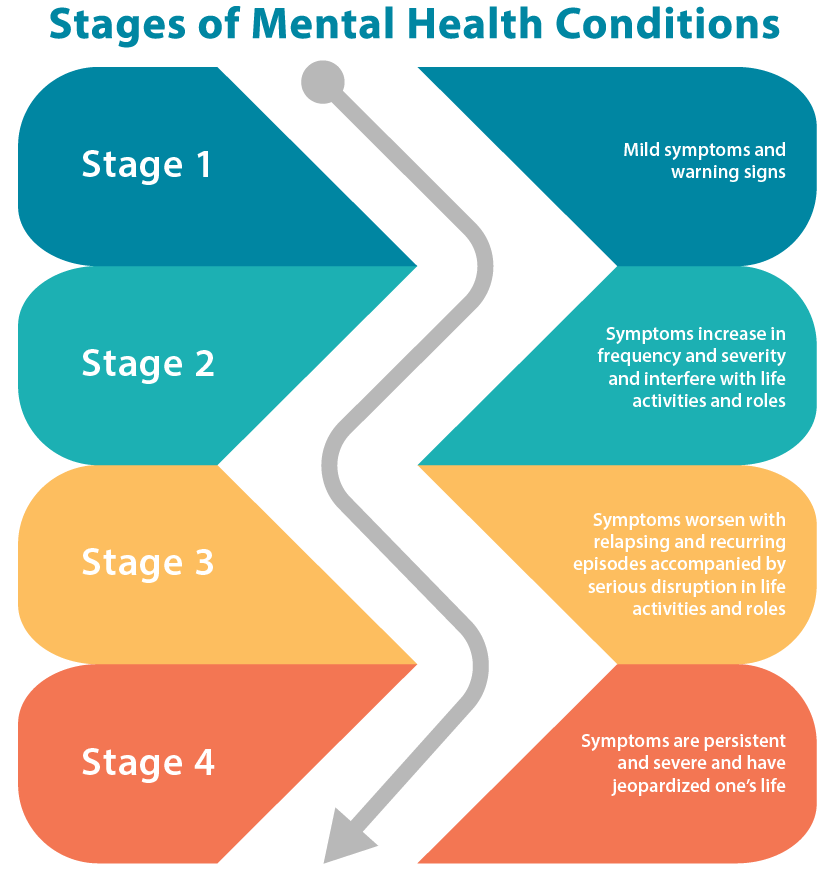When we think about cancer, heart disease, or diabetes, we don’t wait years to treat them. We start way before Stage 4. We begin with prevention. And when people are in the first stage of those diseases, and have a persistent cough, high blood pressure, or high blood sugar, we try immediately to reverse these symptoms.
This is what we should be doing when people have serious mental illnesses, too. When they first begin to experience symptoms such as loss of sleep, feeling tired for no reason, feeling low, feeling anxious, or hearing voices, we should act.

These early symptoms might not ever become serious. Like a cough, they often go away on their own, and are nothing to fear. But when they do not go away, it typically takes ten years from the time they first appear until someone gets a correct diagnosis and proper treatment.

This means that by ignoring them, we lose ten years in which we could intervene in order to change people’s lives for the better. During most of these years most people still have supports that allow them to succeed – home, family, friends, school, and work. So people can often recover quickly, and live full and productive lives.
Even when we don’t intervene right away, and serious mental illnesses get worse and disrupt people’s lives, we can act effectively. We can offer people choices and supports to help them recover. These include clinical services, drugs, peer supports, counseling, family supports, and other therapies that also help them manage their thoughts and emotions. These all help keep people connected to their families and their community. Intervening as early as possible preserves education, employment, social supports, housing – and brain power! It also costs less than the all-too-common revolving door of incarceration, hospitalization, and homelessness.
#BeforeStage4